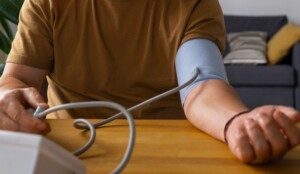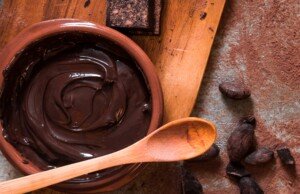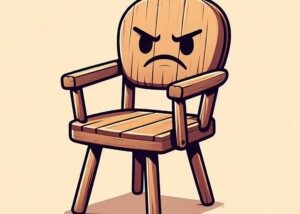
Lowering blood pressure without drugs is perfectly safe, cheaper and has no nasty side effects of conventional medicine.
If you want to lower blood pressure naturally, but are already on drugs to lower blood pressure, make sure you arrange with the prescribing doctor about weaning off conventional medicine for your high blood pressure.
Never quit blood pressure medication without consulting with your doctor.
If your doctor insists you use only conventional medicine, and that natural treatments for lowering blood pressure don’t work, find another doctor.
Conventional medicine for lowering blood pressure is something to be leery at because the “medicines” are actually drugs.
The body is not designed by nature to efficiently process a foreign chemical substance.
The results are side effects and chemical imbalances in the body.
If you have high blood pressure, something is not right inside your body. A drug treats symptoms and does NOT make you healthier.
Side effects of “medicine” for lowering blood pressure include:
Death to an unborn baby if a pregnant woman takes the “medicine.”
Cardiac arrest
Kidney problems
Skin rash
Headache, dizziness, nausea, fainting
Insomnia
Depression
Pneumonia
Impotence
Breast enlargement in men
Many more potential side effects exist.
This article assumes you’ve already been diagnosed with high blood pressure; here’s how to lower blood pressure without conventional medicine:
“When dealing with high blood pressure, the most important thing you can do is eliminate the drivers,” says Dr. Elizabeth Klodas, a board certified cardiologist and founder of Preventive Cardiology Clinic.
“There are multiple factors that contribute to blood pressure going up.”
Exercise. Just a 10-minute brisk walk will lower blood pressure. But don’t stop there.
A more permanent lowering of blood pressure will occur in only a few weeks of consistent exercise: 30-60 minutes a day at least four days a week. Exercise lowers blood pressure by lowering blood volume.
Dr. Klodas says that regular physical activity will decrease blood pressure by 4-9 mmHg.
Mistake: Thinking work you do around the house or yard or with your car counts towards your daily exercise quota. WRONG.

Shutterstock/Monkey Business Images
The 30-60 minutes of exercise must be scheduled exercise time, in addition to any work around the house or on the job.
If you have high blood pressure, all your housework obviously has not prevented it.
Exercise should consist of cardio and strength training, both challenging enough to get you winded but not gasping; and your muscles pleasantly burning but not hurting.
DASH diet: Dietary Approaches to Stop Hypertension (high blood pressure).
Permitted is an occasional portion-controlled non-DASH food such as a donut, roast beef and gravy, or fried chicken. A healthful diet will lower BP by 8-14 mmHg, says Dr. Klodas.
Also recommended is the Mediterranean diet.
It boils down to whichever one fits best with your lifestyle.
Cut sodium. Sodium should be limited to 1,500 to 2,400 mg a day.
Lowering sodium lowers blood pressure because less sodium means reduced blood volume.
Too much sodium constricts the tiniest of our arteries. This, plus high blood volume, forces the heart to work harder in a very unhealthy way.
Myth: Most sodium comes from the salt shaker.
Fact: Most sodium comes from processed and frozen packaged foods, including frozen seasoned vegetables that come in a box!
Myth: You don’t have to worry about sodium content of condiments.
Fact: Some condiments are loaded with sodium! A teaspoon of mustard can have 50 mg of sodium.
Read labels of every food and beverage. What you think may be low in sodium may be off the charts. Flat-out avoid cured luncheon meats, bacon and sausage.
Don’t add salt; use spices and herbs. Rinse canned foods, even low-sodium varieties, with water.
Lastly, your water softener may be adding sodium to your water. Make sure it doesn’t. If it does, use a different purification system. Cutting sodium will reduce BP by 2-8 mmHg, says Dr. Klodas
Get a dog. If you’ve been tinkering around with the idea of getting a dog but keep putting it off, you now have no more excuses: Studies show that petting a dog lowers blood pressure.

If you own a dog, think of all the daily petting you’ll do. A loving dog in the house will help de-stress you, and stress management is yet another way to naturally lower blood pressure.
Reduce stress. How you react to events is what makes the stress, not the actual event. Change whatever you can to de-stress your life.

Freepik.com Yanalya
If you hate your job, look for another one. If you’re in a toxic relationship, end it. If you’re always screaming at your kids, choose your battles wisely; let the messy bedroom go.
Buy a punching bag and wail on it every day for 10 minutes. Cut back on work hours if you can afford to.
Take assertiveness training classes. Make a to-do list for the next day, every night before going to bed so you can sleep well.
Stress raises blood pressure because if enough stress (how you react) occurs on a chronic basis, chemical changes occur in the body, because your reaction tricks the body into “anticipating” an emergency situation.
Chemically, the body gears up for this — but — no physical exertion (that can counteract the chemical changes) ever happens, because the emergency situation is usually a situation in which you CAN’T fight or flee; i.e., being trapped in a traffic jam, being trapped in an office cubicle working for a tyrant; arguing with your teens at the dinner table; balancing the checkbook, etc.
The sedate, trapped body under stress will result in chemical imbalance = high blood pressure.
In addition, losing weight can lower blood pressure by 5-20 mmHG, and lowering alcohol intake 2-4 mmHG, says Dr. Klodas.
“So put it all together – and you can realize anywhere from a 20 to 55 mmHg drop on your own,” she says.
“That’s the same results you’d get from being on a bunch of medications!
“And because sodium is so hard to avoid, being especially diligent in this regard is critical.”

Trained at Mayo Graduate School of Medicine and Johns Hopkins, Dr. Klodas believes in first changing the diet, rather than taking pills, to improve cholesterol profile. Her clinical interests include prevention of heart disease and non-invasive cardiac imaging.
Chocolate for Lowering Your Blood Pressure

Freepik.com
A study from the University of Surrey suggests that dark chocolate, apples and grapes may benefit heart health.
These items contain naturally occurring compounds shown to help lower blood pressure and improve blood vessel function.
Published in the European Journal of Preventive Cardiology (2025), the study reviewed 145 clinical trials.
It found that regular intake of dark chocolate can modestly reduce blood pressure, especially in people with high or borderline-high readings.
In some cases, the effect was similar to that of certain medications.
The study paper points out that chocolate should not replace medical treatment and that further research is still needed.





































